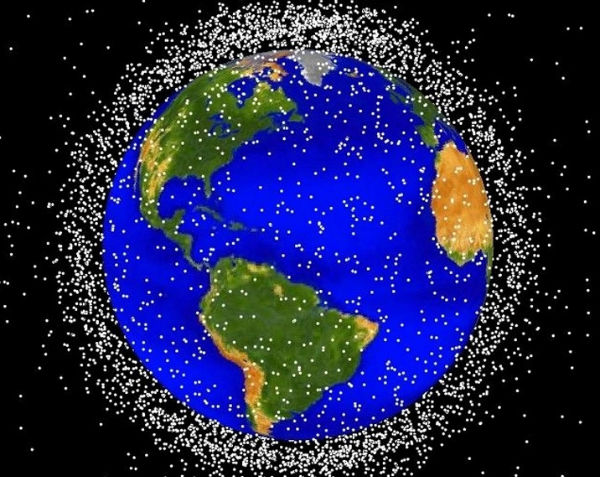8 November 2023
Number of planned low-orbit satellites NOW EXCEEDS ONE MILLION!!
On Sunday, SpaceX launched 23 satellites from Cape Canaveral in the morning, and 22 more from Vandenberg Air Force Base in the evening. This brought the total number of operating satellites irradiating the Earth to about 8,800.
SpaceX has been sending up satellite-laden rockets every few days this year, in its haste to satisfy an insatiable demand for bandwidth by the billions of human beings who use cell phones. But SpaceX is not the only one. Hundreds of companies are competing for a share of the global market to supply Internet from the sky to the world’s population.
On January 5, 2022, I sent out a newsletter listing 147 companies and government agencies from 34 countries that were operating, launching, or planning fleets of satellites that, if they were all launched, would total about half a million in our skies, far outnumbering the visible stars. On October 17, 2023, the journal Science, reviewing filings with the International Telecommunication Union, informed the world that the number of filings and the number of planned satellites have again more than doubled. There are more than 90 filings for constellations of over 1,000 satellites each. Twenty-three have over 5,000 satellites, and eight have over 10,000 satellites. As of December 31, 2022, the number of satellites being planned by 300 companies and governments exceeded one million. And in June, 2023, E-Space, a company based in France and founded by Greg Wyler in 2022, filed a plan for a single megaconstellation containing 116,640 satellites. E-Space had previously filed a plan, via the government of Rwanda, for an even larger constellation containing 327,320 satellites. Two days after his new filing with the ITU, Wyler clarified that “Our filing in France is in addition to our filings in Rwanda.”
July 12, 2024, a 3-judge panel of the U.S. Court of Appeals for the D.C. Circuit gave the green light to SpaceX to keep on destroying our night sky and filling our atmosphere with metallic dust and toxic chemicals.
On December 29, 2022, the International Dark-Sky Association, representing astronomers all over the world, had appealed the decision of the Federal Communications Commission to grant SpaceX a license to launch up to 30,000 more satellites without performing an environmental review. See my newsletter of April 30, 2024 for details.
In Friday’s decision, the court ruled that satellite launches and deployment, no matter how many, “are deemed individually and cumulatively to have no significant effect on the quality of the human environment and are categorically excluded from environmental processing.”
The astronomers have 45 days to decide whether to appeal the 3-judge panel’s decision to the full 15-member Court of Appeals. Even if they do not do so, they can still appeal the panel’s decision to the U.S. Supreme Court within 90 days.



Post your comment
Comments
No one has commented on this page yet.
RSS feed for comments on this page | RSS feed for all comments